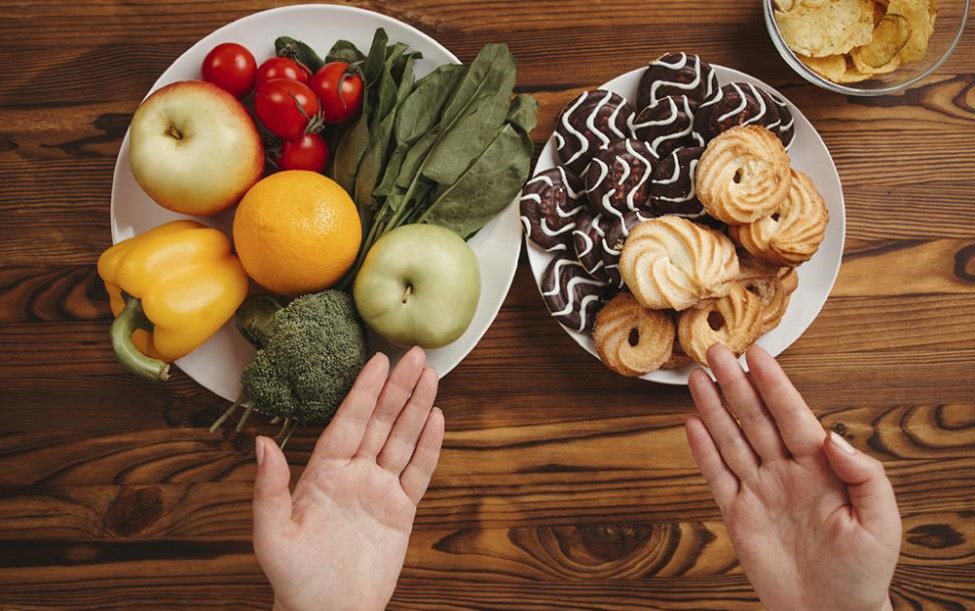
Emotions play a significant role in our food choices. Whether it's sadness, stress, or happiness, our emotional states can influence what we eat, when we eat, and how we feel afterward. This complex relationship between emotions and eating is worth exploring, as it can have a direct impact on both our physical and mental health.
How Do Emotions Influence Our Eating Habits?
%20(5).jpg)
When we experience strong emotions, whether positive or negative, it's not uncommon to turn to food for comfort. This phenomenon, known as emotional eating, can lead us to eat for reasons other than hunger. For example, under stress, some people turn to foods high in sugar or fat, seeking comfort in eating.
The Impact of Stress, Anxiety, and Sadness on Emotional Eating.
Stress, Anxiety, and Sadness
Ever felt so stressed or sad that you just can't stop eating? You're not alone—stress and emotions can have a big impact on our eating habits. However, it’s important to differentiate between acute stress and chronic stress, as their effects on eating habits vary.
Acute stress, an immediate response to a stressful situation, tends to temporarily decrease appetite. This is due to the activation of the sympathetic nervous system, which prepares the body to respond quickly, often reducing the sensation of hunger (1).
In contrast, chronic stress, which persists over a longer period, is often associated with increased consumption of calorie-dense foods, such as sweets or fatty foods. This reaction is due to the prolonged secretion of cortisol, the stress hormone, which stimulates appetite and increases cravings for energy-rich foods. Over time, this behaviour can lead to weight gain and health complications (2, 3).
Joy and Excitement
Positive emotions, such as joy or excitement, can also influence our eating habits, often in a different way. For example, during social events like parties or gatherings with friends, food often takes centre stage, and we tend to eat more than usual. While these occasions are associated with positive moments, it’s important to stay mindful of satiety cues to fully enjoy the real pleasure of eating.
How to Stop Emotional Eating?
%20(4).jpg)
Here are some tips to help manage emotional eating:
1. Identify Your Emotional Triggers
Take the time to note the situations or emotions that lead you to eat, even when you're not physically hungry.
2. Ask Yourself Questions
Before eating, ask yourself, "Am I really hungry?" This can help you differentiate between physical and emotional hunger.
3. Find Other Ways to Manage Your Emotions
For example, physical activity, relaxation, or simply talking to a friend can be good ways to calm your emotions without turning to food (4).
4. Listen to Your Body’s Signals
Learn to recognize hunger and satiety cues, and stop eating when you feel full.
5. Plan Your Meals and Snacks
Planning your meals and snacks in advance helps structure your eating habits, avoid emotionally driven overeating, and promote more balanced choices while meeting your body’s needs.
6. Try the STOP Technique
Use the STOP technique (Stop, Take a breath, Observe, Proceed) to pause, breathe, observe your emotions without judgment, and then move forward in a calmer, more thoughtful way to avoid impulsive eating in response to emotions (5).
Towards a More Balanced and Mindful Approach to Eating

It’s essential to remember that eating is much more than just a matter of nutrition. Food is an integral part of our social, cultural, and emotional lives. The goal is to find a balance where food brings pleasure without becoming the primary way to manage emotions.
Instead of focusing on foods to avoid, it's important to prioritize a varied, nutrient-rich diet while developing a kind awareness of your body. This means becoming attuned to your hunger, fullness, and emotional signals in order to make more mindful eating choices.
Why Consult a Nutritionist or Dietitian to Manage Emotional Eating?

A registered dietitian can help you understand your eating habits and distinguish between physiological needs and emotions. During a consultation, you'll learn to recognize hunger cues and identify moments when you eat for emotional reasons. By adopting strategies such as meditation or physical activity, you can better manage your emotions without resorting to food, while still respecting your emotional needs. This process will help you regain control of your eating habits and improve your overall well-being, developing a more peaceful relationship with food.
Take the First Step Towards Managing Your Emotions Without Turning to Food

Understanding the link between emotions and eating is crucial for finding balance. A nutritionist or dietitian can help you identify your emotional triggers and develop supportive strategies to manage them. If you feel that your emotions are influencing your food choices, don’t wait! Book an appointment with a nutritionist at TeamNutrition today to restore a harmonious relationship with food.
References
- Nakamura C, Ishii A, Matsuo T, Ishida R, Yamaguchi T, et al. (2020) Neural effects of acute stress on appetite: A magnetoencephalography study. PLOS ONE 15(1): e0228039. doi.org/10.1371/journal.pone.0228039
- Kara E. Hannibal, Mark D. Bishop, Chronic Stress, Cortisol Dysfunction, and Pain: A Psychoneuroendocrine Rationale for Stress Management in Pain Rehabilitation, Physical Therapy, Volume 94, Issue 12, 1 December 2014, Pages 1816–1825, doi.org/10.2522/ptj.20130597
- van der Valk, E.S., Savas, M. & van Rossum, E.F.C. Stress and Obesity: Are There More Susceptible Individuals?. Curr Obes Rep 7, 193–203 (2018). doi.org/10.1007/s13679-018-0306-y
- National Institute of Mental Health. Five Things You Should Know About Stress. https://www.nimh.nih.gov/health/publications/stress/index.shtml Accessed 11/18/2021.
- Keng SL, Smoski MJ, Robins CJ. Effects of mindfulness on psychological health: a review of empirical studies. Clin Psychol Rev. 2011;31(6):1041-1056. doi.org/10.1016/j.cpr.2011.04.006






